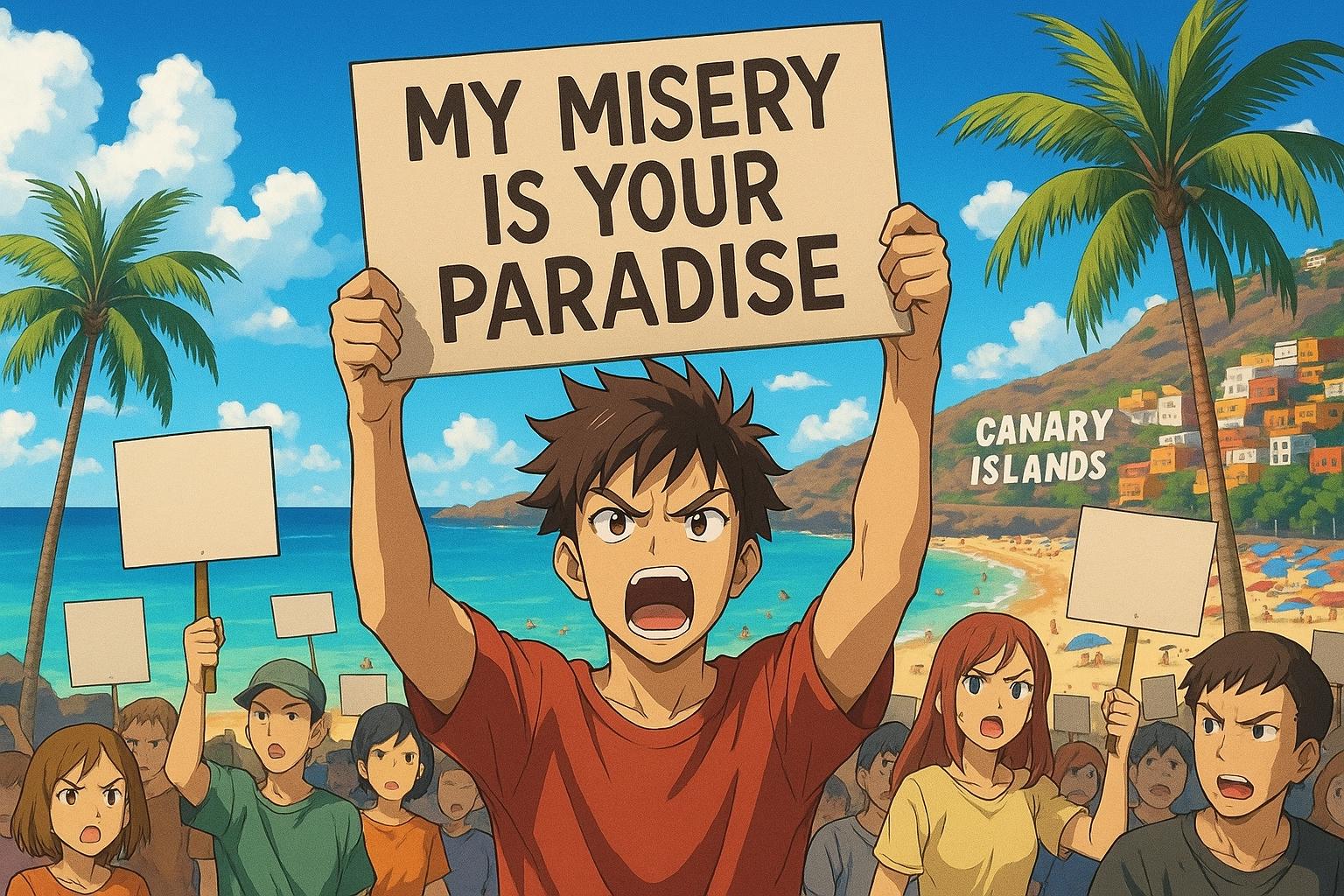In recent weeks, a noticeable shift in British holidaymakers' preferences has emerged, with the Canary Islands experiencing a significant decline in hotel bookings, attributed largely to a resurgence of anti-tourism protests. This change has triggered urgent discussions among local officials and business leaders, as the islands—popular for their sun-soaked beaches and vibrant culture—grapple with the consequences of mass tourism on local life and resources.
According to Santiago Sese, president of the Tenerife Chamber of Commerce, British reservations have dropped by eight per cent compared to the previous year. He noted that competing destinations such as Turkey, Greece, and Morocco have seen an increase in tourism, which raises concerns about the effectiveness of promotional campaigns aimed at British visitors. Local authorities are now engaging in emergency talks to address these declining numbers and engage with protestors demanding reform.
The anti-tourism protests have drawn thousands of participants across the Canary Islands, with demonstrators rallying under the banner “Canarias tiene un límite” (The Canaries have a limit). Activists voice frustrations regarding the impacts of mass tourism, such as overcrowding, inflated housing prices, and environmental degradation. Reports suggest that local resources are increasingly strained as the islands, home to about 2.2 million residents, welcome approximately 18 million tourists each year. Observers note that infrastructure, including water and healthcare services, struggles to accommodate this influx, particularly during peak seasons.
The protests have highlighted varying grievances, including visible signs of dissent, with slogans calling for restrictions on tourist numbers and a halt to new hotel developments. One demonstrator held a placard reading, “My misery is your paradise,” encapsulating the sentiment of those who feel their homes and livelihoods are threatened by the tourism model that has prioritised visitor numbers over local well-being. Calls have also emerged for an eco-tax aimed at addressing the costs of tourism on natural landscapes.
Amidst the protests, key industry figures have voiced their concern about the repercussions of diminished trust in the Canary Islands as a destination. Pedro Alfonso, president of the federation of hotel owners in Tenerife, cautioned that “every small collapse has an echo in trust,” suggesting that the ongoing unrest could deter potential investments and further exacerbate the situation. The recent unrest is reflective of a broader trend across Spain, where anger towards overtourism has sparked demonstrations in various cities, including Barcelona and Mallorca.
As holidaymakers witnessed protests unfolding around them, some expressed confusion and frustration, caught in the tension between the local population's demands and their own vacation experiences. This juxtaposition has led to what some are calling “tourismphobia,” where tourists feel unwelcome amid growing frustrations from residents who perceive them as part of the problem rather than as guests engaged with the culture.
The call for balance between tourism and sustainable development is now louder than ever, echoing through the streets of the Canary Islands. Local leaders recognise the urgent need for action, with discussions centring on controlling housing sales to mitigate the economic pressures on residents and reconsidering the tourism model that has dominated for decades.
Nevertheless, the path forward remains fraught with challenges as officials and stakeholders navigate these complex dynamics, seeking solutions that honour both the rich tourist draw of the islands and the fundamental rights and needs of the local population.
Reference Map
- Paragraphs 1-2: [1], [2], [4]
- Paragraphs 3-4: [5], [6]
- Paragraphs 5-6: [3], [7]
- Paragraph 7: [2], [4]
Source: Noah Wire Services
